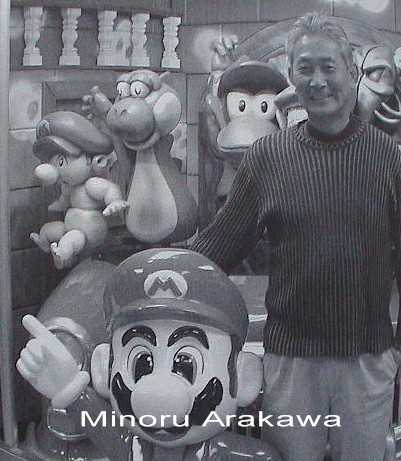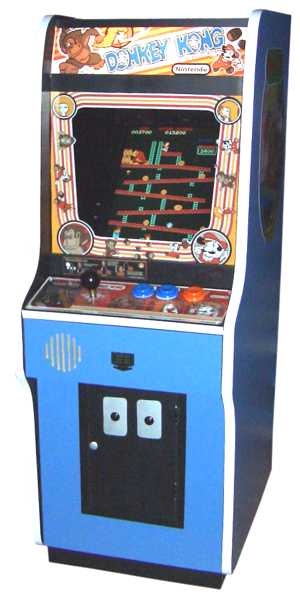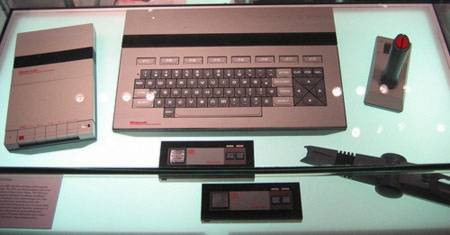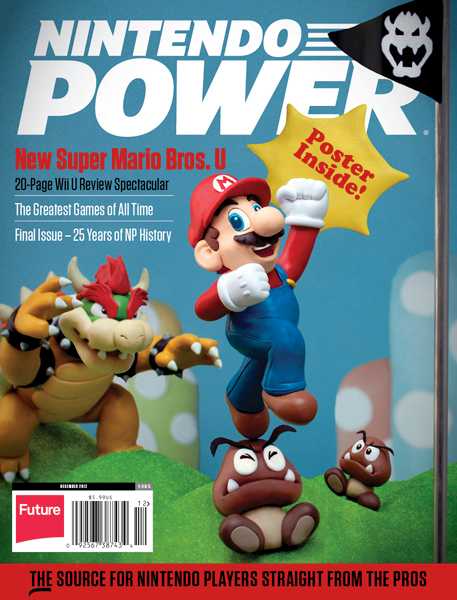| Super Mario - Nintendo Goes Forward |
| Written by Historian | ||||||
Page 2 of 2
The Computer GameWhile all of this creativity was going on Nintendo was playing a computer game of its own. Hiroshi had requested a security device be designed into the Famicom so that only Nintendo could create cartridges that worked with it. However it was quickly realized that selling licenses for other companies to create games was yet another way of making money from the Famicom. Nintendo kept a tight control on the market. Its license was such that Nintendo made money even if the licensee didn't. In the main, though, a Nintendo license was profitable and firms were happy that everyone made money. But Nintendo rationed the number of games that could be produced. They said it was to keep the quality high. The games market had been nearly ruined by a flood of low quality games and Nintendo really were worried that this might hurt their sales in the long term. The licensees on the other hand saw the restrictions as a cap on their potential profits. This caused much bitterness towards Nintendo. Rather than the goose that had laid a golden egg it was seen as the controller of the flow of wealth and far too strong for its own good. The US MarketAfter Japan Nintendo needed to move into the USA market and then into the rest of the world. The USA wasn't an easy proposition because of the collapse of Atari. At first Nintendo attempted to use Atari as a way into the US. They licensed Donkey Kong on the Atari and almost let them put their badge on the Famicom - yes the Nintendo system could have been the winner Atari needed. But in reality Atari was being mismanaged into the ground. It had over produced, been slow to improve games and hardware and cut prices to the point that retailers were worried about taking any stock. In 1984 the US computer games business was more or less dead. Atari made huge losses and was eventually sold to Jack Tramiel, the founder of Commodore. He turned it into a home computer company. The arcade part of the business was sold to Namco - a Nintendo rival. It wasn't just Atari that gave up the struggle - the toy manufacturer Mattel sold of its electronics division and Coleco folded. Every one was of the same opinion - there was no money in computer games!
This is the atmosphere that Nintendo had to contend with. Minoru Arakawa, Hiroshi's son in law, took on the task of building the company in the US and his first attempts centered on the arcades. From a base in New York he tried to sell thousands of Radarscope games - yes the very ones that Miyamoto was supposed to reprogram because they were so useless! Of course he failed but Donkey Kong was coming to the rescue. The fledgling company moved to Seattle and waited for the new game chips. When it arrived they were in a state of shock - Donkey Kong did not sound like a winner and they assumed that they could add it to the unsellable stock pile of radarscope games! But they gave it a go.
They first had to give the Japanese characters English names - the princess was called Pauline after the warehouse manager's wife but what to name the short and stout carpenter with the red cap? The answer came when they opened the door to their irate landlord wanting the rent paid. His name was Mario Segali and the character was at once dubbed Mario, Super Mario... Donkey Kong many not have sounded like a hit but it was addictive and the number of games that Nintendo of America (NOA) sold increased each day. Next it was time to sell the games console but this wasn't easy. The Famicom had been remodelled - it was now a smart grey and was called the Advanced Video System (AVS). But the toy distribution chain in the US was still feeling the losses inflicted by Atari and the others. They refused to even stock the Nintendo machine.
AVS
Arakawa and his team worked hard to convince them. They laid on demonstrations, begged retailers to take some machine to see what would happen. They made it a risk free proposition and still most declined the offer! A company with less drive and commitment would have given up but Arakawa and his small team worked hard and got a foot in the door. The AVS wasn't an instant success but it did sell well enough to convince any retailer that had stocked it once to carry on stocking it. The sales grew slowly and steadily as the word spread that Nintendo was the machine to have because they have the great games. NOA grew and grew. It used the same sort of licensing arrangement for third party games that Hiroshi had instigated in Japan. It also ran Nintendo Power - a magazine with a huge circulation - around 5 million! - that was sent to every console owner and only shut up shop in December 2012.
The magazine was used to preview games and build up the market before they were released. This was fine as long as it was one of your games that was being hyped but what if it wasn't? The licensing system and the power that Nintendo had created a great deal of bad feeling even in those companies that made huge profits via NOA. The suspicion was always that the profits would have been even more if NOA had manufactured more cartridges or hyped the game more in Nintendo Power. Eventually all of this came to a head in a number of lawsuits for anti-trust violations. NOA's competitors claimed that they controlled the market for their own benefit and this amounted to an unfair restraint of trade. Arakawa and his team had rebuilt the video games industry in the USA and were being made to pay the price of success. For a while Nintendo started to lag in the market. It was slow to bring out a 16-bit console and this allowed Sega among others to catch up.Then the Sony Playstation and the Microsoft XBox seemed to be taking game playing into new territories as games consoles rival the power of desktop machines. More recently the introduction of the Wii, and its successor the Wii U took computer games into completely new territories with more sophisticated input devices. But even here Nintendo is being overtaken by clever input devices such as the Microsoft Kinect. Currently it once again looks as if Nintendo needs a new idea. Game OverIf you want to know more about Nintendo's history - and there are lots of incidents I haven't told you about like MCA suing over copyright infringement of King Kong - read Game Over - Nintendo's Battle to Dominate An Industry by David Sheff, see details in the sidebar.
Related ArticlesA Brief History Of Video Games Classic Nintendo Games Are NP Hard
To be informed about new articles on I Programmer, sign up for our weekly newsletter, subscribe to the RSS feed and follow us on Twitter, Facebook or Linkedin.
<ASIN:0340599820> <ASIN:0966961706> <ASIN:0679404694> |
||||||
| Last Updated ( Saturday, 16 March 2024 ) |





